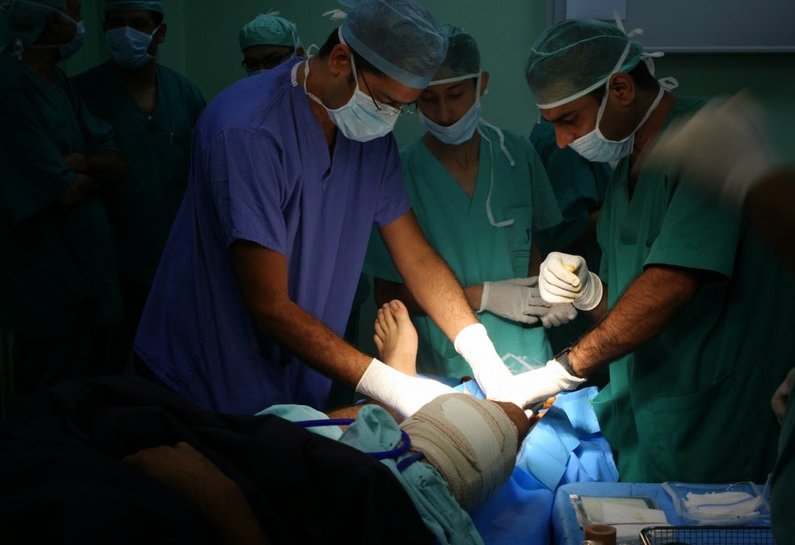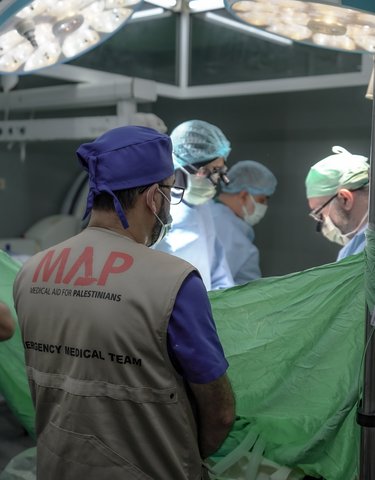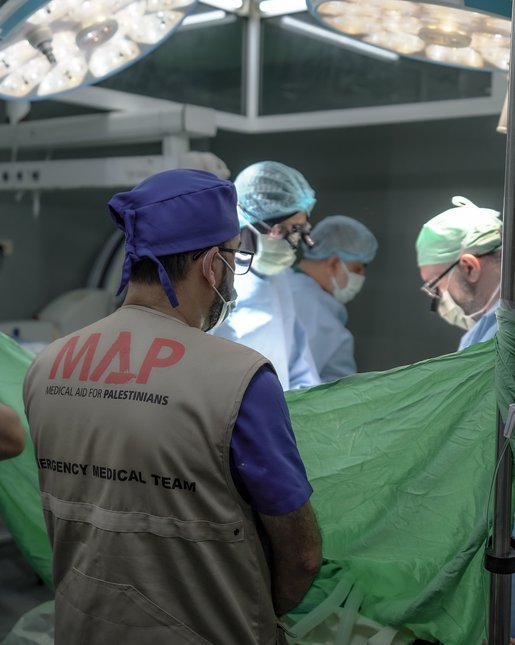Gaza update: hospital and seven clinics close due to fuel shortages

A spokesperson from the Palestinian Ministry of Health (MoH) said the situation in Gaza has entered an “unprecedented stage” and that urgent action is needed to prevent the collapse of Gaza’s health system.
Despite a temporary restoration of power funded by the Palestinian Authority and provided by Israel, Gaza still only receives 6-8 hours of mains electricity daily. Hospitals and medical centres are therefore still reliant on backup generator power for the majority of the day, fuel for which is quickly running out. Funding for emergency fuel provided by the UN to critical health, water and sanitation, and solid waste facilities, is expected to be exhausted in a few weeks, at most.
On 29 January, MAP’s team in Gaza reported that Beit Hanoun Hospital closed due to severe shortages of fuel for hospital generators. When functional, this hospital provides medical care to over 300,000 people in northern Gaza. In a statement, the MoH said "patients will be transferred to other governmental hospitals."
On 31 January, the MoH announced that seven medical centres in Gaza had closed due to lack of fuel to power generators: the Sourani Centre, the Palestinian Medical Centre, the Medical Foundation, the Gaza Health Administration, Abasan Al-Kabira, the Atatra and the Society of Physically Handicapped People – Gaza Strip.
MRI services at the European Gaza Hospital (EGH) – which serves patients from all MoH hospitals in Gaza – were also suspended.
MAP’s team have also reported that Gaza’s largest medical complex, Al Shifa Hospital in Gaza City, closed a sterilisation unit to reduce fuel consumption. Heating is suspended and air conditioning is only running in operation rooms and in Intensive Care Units. Services at Al-Durra Paediatric Hospital are also threatened and it is reported the hospital has been forced to scale back its services by 60%.
Meanwhile the sustainability of UNRWA health services in Gaza, where two-thirds of the population are refugees, continues to be threatened by the US decision to cut its contributions to the agency by $65 million. This comes on top of UNRWA’s long-term budgetary deficit. UNRWA officials have launched an $800 million appeal for its emergency programmes in Syria and the occupied Palestinian territory, including Gaza
Israel authorities announced on 31 January that they will allow power generators to be taken into the Gaza to ease the situation. Such action needs to be matched with longer-term solutions to Gaza’s wider electricity and humanitarian crises. This should include lifting the restrictions on travel which last year saw Israel authorise the lowest percentage of exit permits for patients needing to exit Gaza for medical treatment (55% approved), and ending the 10-year blockade and closure which has devastated infrastructure and the economy.
MAP’s team in Gaza is responding to the developing needs of the health system by purchasing and distributing medicines and providing training and material support to neonatal intensive care units and other critical services in hospitals.
Please donate today to support this vital work.
Related content




